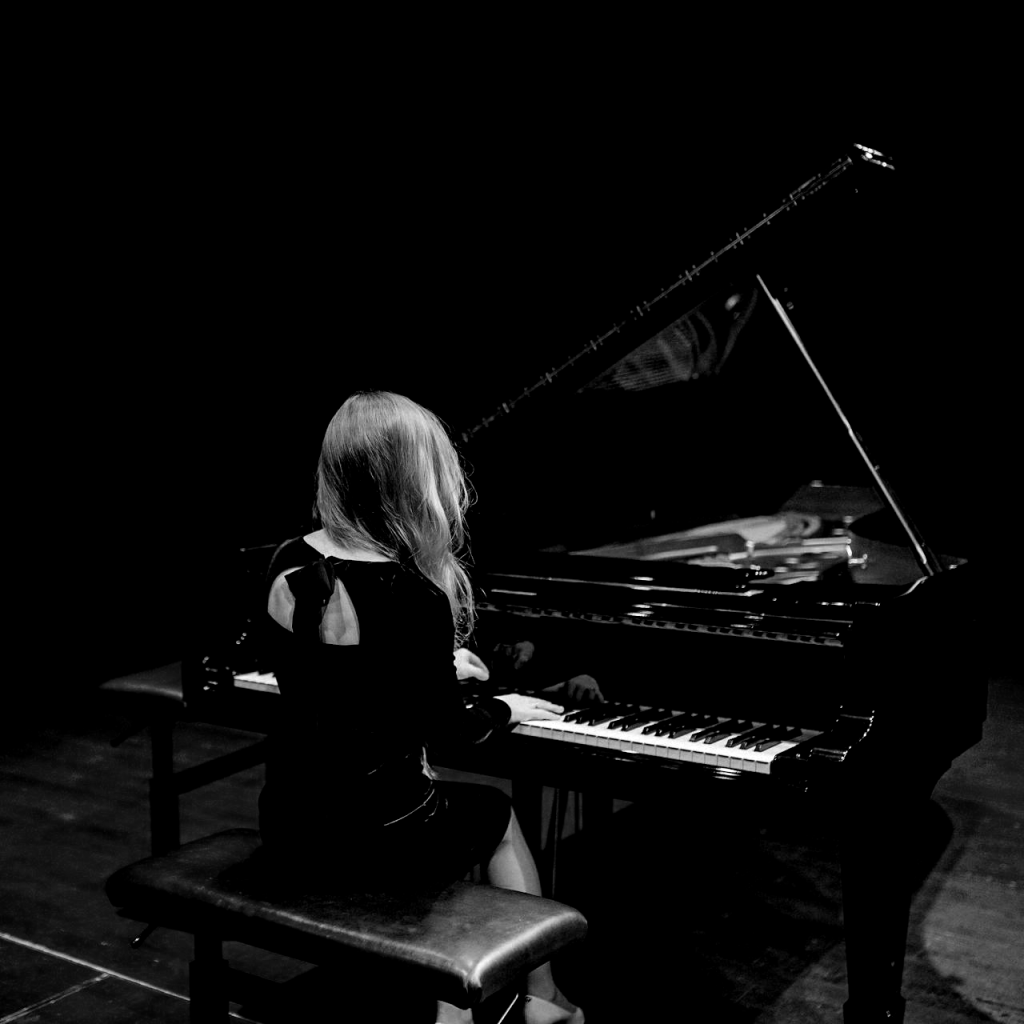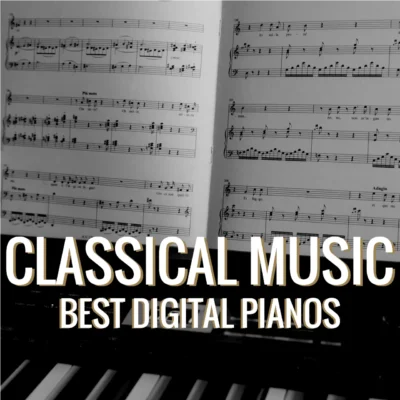I’ve been playing piano for over 50 years. During this time, I’ve tried so many digital pianos for classical music – more than I can count! Right now, I play on my trusty Kawai CN33 at home. Finding the perfect digital piano for classical music can be tricky! I’ve tested many models, and I’m excited to share what makes a great choice for playing classical pieces.

Key Features That Matter Most for Classical Playing
When I test digital pianos for classical music, I focus on three main things that make a big difference:
The keys of Digital Pianos for Classical Music must feel real. Kawai’s Grand Feel III and Yamaha’s GrandTouch-S feel most like a real grand piano. The weighted keys and textured surfaces help a lot when practicing classical pieces.
Sound quality is a must. I found that Roland’s SuperNATURAL technology and Yamaha’s CFX sampling sound the best. They respond well to soft and loud playing, and the strings sound natural.
You need enough polyphony. When looking for Digital Pianos For classical music with lots of pedaling, look for at least 192 notes.
Top Recommendations Based on Experience
After years of testing and teaching, here are my favorite digital pianos for classical music:
Advanced Level:
- Kawai CA99: The keys feel amazing
- Yamaha CLP-785: Beautiful grand piano sound
- Roland LX708: Outstanding sound modeling
Intermediate Level:
- Kawai CN39: Great value for serious students
- Yamaha CLP-745: Excellent key action
- Roland HP704: Good mix of features and price
Essential Features for Classical Practice
In my teaching studio, these features really help:
- Half-pedaling: For better control
- Adjustable touch settings: Helps you learn proper technique
- Good headphones output: Perfect for night practice
Making Your Final Decision when browsing Digital Pianos for Classical Music
While specs matter, try the piano yourself! I tell my students to play their favorite pieces on different models. Notice:
- How the keys feel during soft playing
- Sound control during loud parts
- How the pedal works with long notes
Sound Quality Considerations
Here’s something important I’ve learned teaching: while many focus on the keys, sound matters just as much! Good digital pianos for classical music help students learn dynamics better. This really helps with pieces like Chopin’s Nocturnes or Debussy’s preludes.
Practical Tips From My Studio
Here are some helpful tips from my teaching:
- Test the pedal well. One student struggled with Beethoven until we fixed their pedal settings.
- Listen to how notes fade away. Good pianos, like the Yamaha CLP series, sound natural.
- Use headphones! They help you hear all the small details.
Budget-Friendly Options
Don’t worry about the expensive models! Here are some good, cheaper digital pianos for classical music:
- Yamaha P-515: Great value with professional features. Its Natural Wood X (NWX) keyboard feels close to an acoustic piano. I’ve had students perform Bach inventions beautifully on this model.
- Roland’s FP-60X: Nice sound for the price. The PHA-4 keyboard action works well for classical pieces. Plus, it’s portable enough to take to lessons or small performances.
- Kawai ES920: Professional features for less. The responsive key action and great sound make it perfect for practicing classical music at home. I especially love its clear tone in Mozart sonatas.
Practice Tips for Classical Pianists
Let me share some extra tips I’ve learned about practicing on digital pianos for classical music:
- Use Different Sound Settings
- Try both bright and mellow piano sounds
- Practice with different touch sensitivities
- Record yourself using the built-in recorder
- Make the Most of Technology
- Use the metronome for timing practice
- Split the keyboard for duet practice
- Save different settings for different pieces
- Care and Maintenance
- Keep your digital piano clean
- Place it away from direct sunlight
- Use a good bench with proper height
Final Thoughts
After teaching many students over five decades, I know how much the right piano matters. While I love my Kawai CN33, newer digital pianos offer even better features for classical music.
Take your time choosing. Play scales, try pieces you know well, and listen carefully. The right digital piano will make you want to practice more and help you improve.
A digital piano for classical music should feel like a friend who helps you grow. Try different models, trust your fingers, and choose one that inspires you to play every day. Remember – even great pianists like Vladimir Horowitz practiced on digital pianos when they became available!
Feel free to ask me about specific models or techniques. We’re all learning and growing in our classical music journey together!
FAQs About Digital Pianos for Classical Music
Can I develop proper classical techniques on a digital piano?
Yes! Modern high-end digital pianos, especially from Kawai, Yamaha, and Roland, offer weighted actions that closely simulate acoustic pianos. I’ve successfully trained many students using quality digital instruments.
How much polyphony do I really need for classical music?
Based on my experience teaching advanced repertoire, I recommend at least 192-note polyphony. This ensures complex passages with sustained pedaling won’t drop any notes.
Is it worth investing in a high-end digital piano for classical practice?
Absolutely! The improved key action and sound quality of premium models significantly impact technique development. I’ve seen remarkable progress in students who practice on high-quality digital pianos.
How long do digital pianos last?
With proper care, a good digital piano can serve you well for 10-15 years. My Kawai CN33 is still going strong after many years of daily use.
Can I perform classical concerts with a digital piano?
Absolutely! Many of my students use digital pianos for recitals. The key is choosing a model with good key action and realistic sound.


